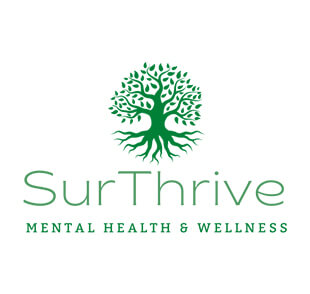All Humans Experience Trauma at Some Point in Their Life.
But We Shouldn’t Let Emotional Pain Define Who We Are.
Sometimes, traumatic events are big; other times, they’re more subtle and harder to identify.
“Big T trauma” may include a car accident, rape, natural disaster, war, being a victim of a crime, or abuse. The subtler “Little T traumas” include being bullied, being talked down to, losing a pet, having a breakup, or suffering a family conflict.
When you don’t process distressing life experiences, they can leave you in a constant state of “fight, flight, or freeze” because the brain is stuck in the “danger mode” activated when it perceives a threat.
 Negative Life Experiences Can Affect Your Present in So Many Ways.
Negative Life Experiences Can Affect Your Present in So Many Ways.
Often, you feel like something is seriously wrong. Even when you know logically that you’re in a safe place or situation, your body tells you it’s in danger. The fear of not understanding the threat only adds to the panic.
And when the panic strikes, any good feelings you may have had are sucked right out and replaced by hot flashes, heart palpitations, and sweaty palms. You feel like you’ll die if you don’t escape! And afterward, you’re drained. The dump of adrenaline and cortisol from “battle” leaves you depleted.
The cycle leaves your body hurting! Trauma can cause symptoms strong enough to make you think there’s something wrong with you physically.
Sleeping is hard. Sometimes you can’t get to sleep because you can’t stop thinking… or you wake up in sweats from nightmares. The obsessive thoughts about “the scene of the crime” can’t help but haunt you at night.
And when you live in pain and on lousy sleep, you can’t concentrate… and other things start to fall by the wayside. It’s harder to control your feelings and you might struggle with apparently inexplicable outbursts of anger or crying. And they don’t always come at convenient times. They can occur at work or cause problems in your relationships.
As you fall into the vortex, it’s common for your thinking to get more and more negative. Your thinking can become distorted… and you hear yourself saying things like “I’m defective, “Something is wrong with me,” “I’m out of control,” “I’m not safe,” or “I’m unlovable.” As these thought patterns become more entrenched, they can start to take over your behavior!
That’s When You Scramble for Anything to Help You Cope with Your Emotional Distress.
Have you turned to substances or other compulsions to self-medicate?
Do you engage in disruptive behaviors or pour yourself into work to distract yourself from your troubles?
Do you feel like you’ve fragmented into different people inside to deal with different parts of the trauma?
Or maybe you’ve just shut down and feel numb, floating through life on autopilot like a dream.
 Here’s How EMDR Therapy Can Help
Here’s How EMDR Therapy Can Help
Eye Movement Desensitization and Reprocessing (EMDR) is a therapeutic tool that can help you resolve traumatic experiences, anxiety disorders, depression, panic disorders, OCD, chronic pain, and other difficulties stemming from painful past experiences.
Under normal conditions, your brain processes new information and forms new memories in a healthy way. But when a distressing event happens (like witnessing someone being injured, getting in a car accident, being involved in violence, fighting a war, etc.), the brain struggles to process that information. Rather than being “filed away,” it remains stuck in your brain and nervous system, causing problems long after the event.
Using bilateral stimulation (BLS), EMDR helps the brain REPROCESS the memories, “refiling” them as if they happened under normal conditions, thus relieving many negative symptoms.
BLS is as simple as activating each side of the body through rapid eye movement, body touches, or other movements to activate one side of the body and then the other.
With online therapy, I use a virtual ball that bounces back and forth from one side of the screen to the other. Your eyes will follow the ball back and forth until I stop it. Sometimes, I will activate an audible sound that will stimulate one ear at a time while you follow the ball. Other times, I will have you provide the BLS by crossing your arms across your chest and tapping each shoulder, one at a time.
EMDR has been widely researched and proven effective in helping people overcome traumatic experiences.
It’s Time to Break the Chains! Learn How to Manage Painful Memories in a Healthy Way!
Let’s clear out all those Big Ts and Little Ts so you can live your best life!
You’ve come this far… now, take that next step!
Call or text to schedule your free consultation: (843) 941-9260.

Contact Michelle to
schedule an appointment
FAQs
What types of traumas can EMDR therapy help with?
EMDR therapy can offer a powerful and compassionate path to healing for individuals who have experienced various types of traumas and are struggling with post-traumatic stress disorder. Whether you’ve faced “Big T traumas” or “Little T traumas,” this mental health treatment can be a guiding light in your journey toward emotional well-being.
“Big T traumas” encompass significant and distressing events that can deeply impact your daily life. These may include experiences like car accidents, rape, natural disasters, war, being a victim of a crime, or enduring abuse. EMDR therapy can provide a safe and nurturing space for you to process these intense traumas, helping you regain control over your emotions and find peace amidst the pain.
“Little T traumas” can be subtler and more challenging to identify, but their impact should not be underestimated. These experiences might include being bullied, facing hurtful remarks or put-downs, losing a beloved pet, going through a heart-wrenching breakup, or enduring family conflicts. EMDR therapy recognizes the significance of these distressing events and offers a gentle way to address and heal from their lingering effects.
Through the bilateral stimulation trauma treatment, EMDR works to reprocess traumatic memories, allowing your brain to process them in a healthy manner, as if under normal conditions. This process empowers you to release the emotional burden of the distressing memory, creating space for growth, resilience, and a renewed sense of self.
What does the EMDR therapy process involve in online sessions?
In our online EMDR therapy sessions, we will create a safe and supportive virtual space where you can explore your emotions and experiences without judgment. Rest assured that even in the virtual setting, the power of trauma therapy remains unchanged, and you can still experience the transformative benefits of this healing approach.
During virtual EMDR sessions, I will guide you through the process, utilizing bilateral stimulation (BLS) to facilitate the reprocessing of distressing memories and negative emotions. The BLS technique involves activating each side of your body through gentle movements, such as rapid eye movements, body touches, or other motions.
As your empathetic therapist, I am committed to providing the highest level of care when we engage in EMDR therapy online. Your comfort and well-being are my top priorities during our telehealth appointments, and together, we will create a healing space where you can explore, heal, and grow.
Throughout telehealth sessions, you will be in control, and I will be there to support you every step of the way. I understand that opening up about painful memories can be challenging, and my approach is rooted in empathy, compassion, and non-judgment. Together, we will uncover the layers of emotional distress and work towards reprocessing those memories, so they no longer hold power over your well-being.
Can EMDR therapy help with issues beyond traumatic experiences?
Absolutely, EMDR therapy extends its healing touch beyond traumatic experiences. While its efficacy in addressing trauma is well-known, EMDR is a versatile and profound therapeutic tool that can help with a wide range of mental health challenges and emotional disorders.
- Anxiety disorders, characterized by persistent worry and fear, can be significantly alleviated through EMDR. By reprocessing the underlying memories and triggers that fuel anxiety, EMDR empowers you to regain control over your thoughts and emotions, allowing you to embrace life with greater calmness and confidence.
- Depression, with its heavy emotional burden, can also find relief through EMDR therapy. By addressing the core experiences and negative beliefs that contribute to depression, EMDR can pave the way toward a more positive and hopeful outlook on life.
- Panic disorders, marked by overwhelming and sudden episodes of fear, can be effectively treated with EMDR. Through the reprocessing of distressing memories, EMDR helps you reduce the intensity and frequency of panic attacks, providing you with a newfound sense of inner stability.
- Chronic pain, often influenced by emotional factors, can be addressed through EMDR as well. By processing the emotional distress related to pain, EMDR can contribute to reduced pain perception and improved overall well-being.
The emotional challenges that arise from painful past experiences beyond traumas can also be transformed with EMDR therapy. Whether you struggle with relationship or self-esteem issues, or coping difficulties, EMDR’s transformative power can help you release emotional burdens, fostering personal growth and resilience.
Is EMDR therapy extensively researched and proven effective?
Absolutely. EMDR therapy is extensively researched and has a robust body of evidence supporting its effectiveness. Numerous scientific studies and clinical trials have been conducted over the years to evaluate the impact of EMDR on individuals facing various emotional challenges and traumatic experiences.
EMDR has been recognized as a recommended treatment for PTSD by prestigious organizations such as the American Psychological Association (APA), the World Health Organization (WHO), and the Department of Veterans Affairs (VA). According to the APA, EMDR is considered one of the most effective treatments for individuals dealing with trauma and PTSD.
EMDR counseling has been compared to other therapeutic approaches, including traditional talk therapy, and the evidence consistently supports its effectiveness. Studies have shown that EMDR is as effective as cognitive-behavioral therapy (CBT) and exposure therapy, and in some cases, it has shown even greater symptom reduction.



 Negative Life Experiences Can Affect Your Present in So Many Ways.
Negative Life Experiences Can Affect Your Present in So Many Ways. Here’s How EMDR Therapy Can Help
Here’s How EMDR Therapy Can Help